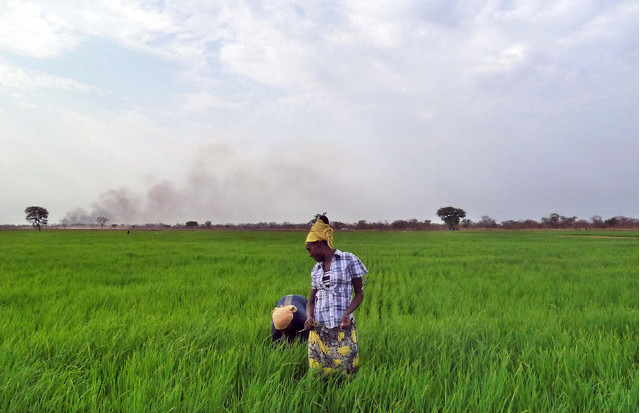 Employees at a Saudi Star Agricultural Development Plc rice farm work in a paddy in Gambella, Ethiopia, on March 22, 2012. (Getty Images)
Employees at a Saudi Star Agricultural Development Plc rice farm work in a paddy in Gambella, Ethiopia, on March 22, 2012. (Getty Images)
By William Davison
Gleaming Deere & Co. (DE) tractors and harvesters are sitting idle five years after Karuturi Global Ltd. (KARG) opened a farm in Ethiopia that was hailed as the poster child of the country’s plan to triple food exports by 2015.
Eighty percent of the Bangalore-based company’s land in the southwestern Gambella region is on a flood plain, meaning its 100,000-hectare (247,100-acre) concession is inundated by the Baro River for as much as seven months of the year, according to Managing Director Ramakrishna Karuturi. The company was unaware of the extent of the flooding when it leased the land, he said.
“Karuturi, like many other large-scale investors, underestimated the complexity of opening land for large-scale commercial agriculture,” Philipp Baumgartner, a researcher at the Bonn, Germany-based Center for Development Research who wrote a doctoral thesis on agriculture in Gambella, said in a Nov. 20 response to e-mailed questions. “The land leased out wasn’t properly assessed by either of the contracting parties.”
Karuturi, the world’s biggest rose grower, was one of the first companies to take advantage of a government plan to lease 3.3 million hectares (8.2 million acres) of farmland to private investors.
Read more.
—
Join the conversation on Twitter and Facebook.

























